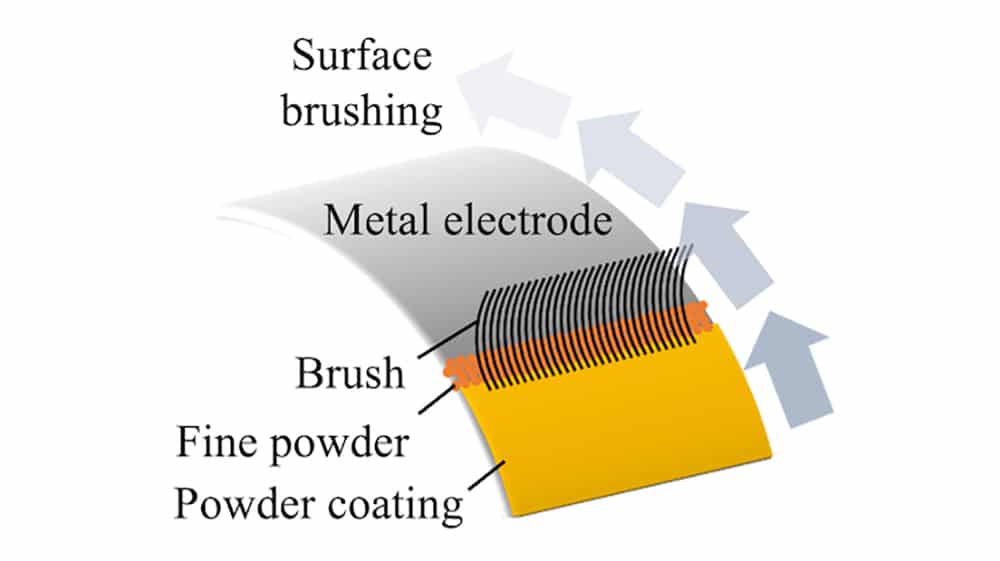Battery designs are swiftly changing from metal-ion to rechargeable metal batteries with improved energy density.
Now, scientists at Rice University introduced a technique to tune the surface of anodes for batteries by simply brushing powders into them. The powder adheres to the anode and becomes a thin, lithiated coating that effectively prevents the formation of damaging dendrites.
The technique begins with the brushing of the anode to give it texture, then brushing in powder of phosphorous and sulfur to create the fine film that reacts with the lithium metal and forms a solid passivation layer. The powders effectively tune the surface energy of the electrodes, making for a more uniform behavior across the material.

“This provides a metal composite surface that prevents the loss of lithium metal from the anode, a common problem in lithium metal batteries,” said James Tour, who led the team. “Lithium metal batteries far exceed the capacity of traditional lithium-ion batteries, but the lithium metal is often difficult to repeatedly recharge.”
Researchers explained that the powder at the lithium metal surface produces an artificial passivation layer that improves the stability throughout the charge-discharge cycles. Using this brush-on method, the metal surface is stabilized so that it can be safely recharged, they say.
The powder ground into the surface of lithium metal foil demonstrated its surface energy could be tuned without the need for toxic solvents. Anodes so modified and paired with lithium-ion phosphate-oxide cathodes in test cells showed they retained 70% more capacity after 340 charge-discharge cycles than off-the-shelf batteries. The film also performed well in terms of battery degradation, retaining an ultralow polarization for more than 4000 hours, eight times longer than bare lithium anodes.
“This would simplify the manufacture of high-capacity batteries while greatly improving them,” Tour said. “Sanding these powdered solids into a lithium metal anode dramatically reduces dendrite formation that can short circuit a battery, as well as the accelerated consumption of the materials.”
Brushing thin films onto electrodes gives batteries a longer life
Source: Tambay News

0 Comments